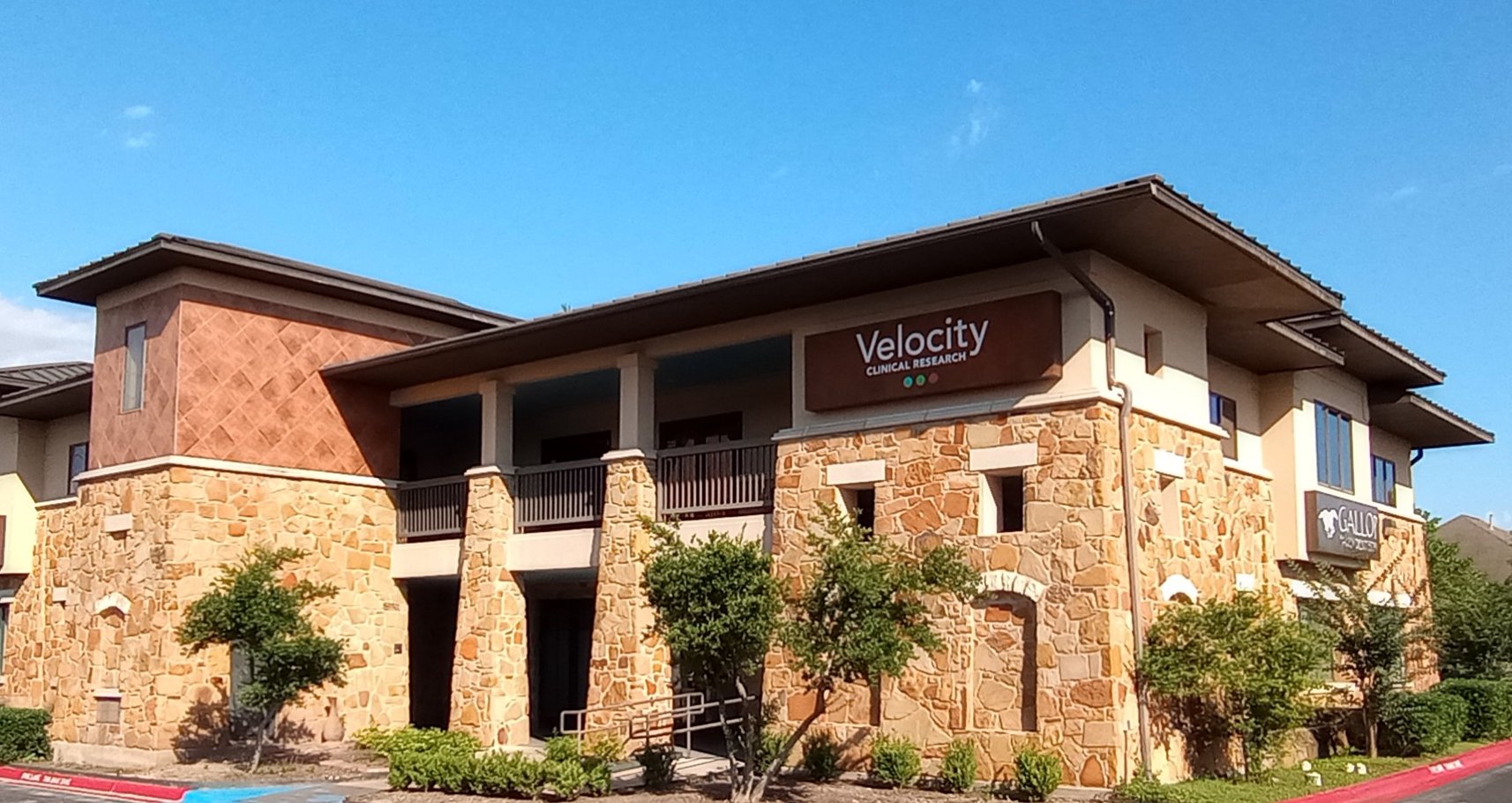Doctor Q&A: A Candid Conversation on Being a Clinical Trial Participant
By Mark Lawrence Burwell
 Curious about the world of clinical trials? Meet Dr. Michael Zimmerman, Principal Investigator at Velocity Clinical Research in Cedar Park. He shares his invaluable insights on participating in paid clinical trials. Join us in this candid Q&A session as Dr. Zimmerman sheds light on what it really means to be a part of cutting-edge research, debunking myths and offering friendly advice. Get ready to discover a new perspective on healthcare and research!
Curious about the world of clinical trials? Meet Dr. Michael Zimmerman, Principal Investigator at Velocity Clinical Research in Cedar Park. He shares his invaluable insights on participating in paid clinical trials. Join us in this candid Q&A session as Dr. Zimmerman sheds light on what it really means to be a part of cutting-edge research, debunking myths and offering friendly advice. Get ready to discover a new perspective on healthcare and research!

Hello Dr. Zimmerman! I’m glad you were able to find some time to chat with me today. So, I understand that you moved to Austin about ten years ago. How have you been enjoying the town so far?
Thanks, Mark. Well, yes, I’ve been here ten years now with my wife and kids and we love it here. I wish we had moved here sooner!
Are your kids going to school locally?
Well, my oldest has finished school and now lives in the Chicago area, but my middle guy is a junior at Texas A&M, and my youngest is starting her junior year of high school in Leander.
Awesome. Okay, well, why don’t you tell us about your background and what inspired you to get involved in clinical research.
Sure. So, I grew up in central Illinois and went to college at Creighton University, which is in Omaha, Nebraska. I got my bachelor’s in science, always intending to go to medical school. Then I got my Master’s in Physiology. After my first year of medical school, I received a research grant to spend a summer in the lab of a cardiologist where we were doing gene transfers into heart cells. I always enjoyed molecular biology and genetics in college and graduate school, so this was really quite cool to me. But at that time, I found that I really enjoyed emergency medicine (EM) where I ultimately worked in emergency medicine full-time for twenty-four years until transitioning full-time into clinical research at Velocity, adding to the body of knowledge that will lead to better therapies in the years to come.
With that in mind, what kind of studies are currently underway at Velocity Clinical Research? Specifically, those that cater to women and children.
We actually have a really wide range of studies and several that cater to both women and children’s health. For children, we currently have studies that involve asthma and migraines. Both studies already have approved medicines for adults which are highly effective, and now they’re just looking at different dosing for children.
We have a number of vaccine trials as well. For young women and mothers, we have a trial looking at a vaccine for CMV, or cytomegalovirus, which is one of the leading causes of birth defects like hearing loss and blindness, yet it is not well known to the public!
We have one for Epstein-Barr virus, EBV, which is the virus that mostly causes mono, but it turns out that it also likely causes cancers later in life. We also have some COVID trials as well as vaccine trial for RSV (Respiratory syncytial virus).
We are about to start a trial using a medication approved for adults with IBS (irritable bowel syndrome) with constipation, and we’re now looking at using it for children and adolescents. IBS-C is definitely a challenge for young people.
Then, there are also our clinical trials for fatty liver disease, which can cause a lot of health problems in people. Those most at risk for fatty liver disease tend to be overweight, have Type 2 diabetes or are insulin resistant. Also, those with metabolic syndrome, high blood pressure, high cholesterol, and high triglyceride levels.
It’s another one of those big health topics that not many people know about but can result in major health problems in individuals and causes huge societal and economic burdens.
So yes, that is quite a range of trials. What about upcoming clinical trials that have not begun. Can you mention any of those?
For instance, trials for type 2 diabetes and one looking at medication for obesity. We just started a vaccine trial for people with genital herpes, which aims to reduce outbreaks as well as reduce the ability to spread it. You know, one in five Americans has it, so it is very common. We’ve also done some device trials and plan to do more. We recently did one that uses the camera on your phone to take your pulse rate. We are also doing a very interesting trial where participants can test medical software used for assessing cognitive abilities. So, it’s all quite exciting.
Very nice. Why would you say that it’s important for the local community to participate in these clinical trials, and how can they benefit from it?
Sure. It’s a great question. Well, first and foremost, clinical trials are what bring new medications or devices to market. Or, take an existing product or medication and use it for a new indication. So, it is great to have a wide variety of people from different populations participate in these trials. Those differences may be gender, age, ethnicity, and so on.
One of the reasons why folks join clinical trials is simply because they see it as their contribution to society. That’s how they give back. We have practicing as well as retired doctors, nurses, and other healthcare professionals, who participate in trials, and some of them have done multiple trials with us.
Some of our participants do it because they or a loved one has been affected by a certain ailment for which there’s either no treatment for it or whatever treatment that is available is not helping. Clinical trials give them another option of care.
And then there’s also some who do it because, for most trials, you get reimbursed for your time and travel. So, there’s a whole host of reasons, including just pushing science along, helping the human race, and or just making some extra money.
What makes Velocity Clinical Research stand out in terms of its unique approach to medical studies?
In the time that I’ve been with Velocity, we’ve become the world’s largest organization of fully integrated clinical research sites. We have over 80 sites in the U. S. as well as in Germany and the United Kingdom. We’re also actively pursuing sites in other parts of Europe, Central and South America.
Because of our scale, we’re able to recruit some great talent. We have policies and procedures in place developed by our experts to ensure that the trials that we conduct are done first and foremost with the overarching principle that each and every participant’s safety, welfare, and well-being are protected. This is paramount to me and everyone on our team.
You mentioned patient safety, how does Velocity ensure the safety and well-being of its participants throughout the clinical trial process?
Sure. Well, first and foremost, I’m a physician. I took the Hippocratic Oath. I would never be involved in anything that I thought could significantly harm people. But, you know, here at Velocity, we spend a lot of time both prescreening and screening potential subjects before they are entered into any particular study.
Some of our study protocols are really quite specific as to the type of subject the sponsor is looking to enroll. And one of my jobs is to make sure that the right subjects get enrolled in the right study. Sometimes it is in an individual’s best interest to not enroll them due to certain medical, social, or other reasons. But once a person is enrolled, we monitor them closely.
We monitor our participants in many ways, including inpatient visits, phone and or video calls, as well as through apps on their phone. Someone from our site is on call 24 hours a day. If there’s ever a significant issue related to a study, they can get a hold of somebody, and ultimately get a hold of me.
In addition to this, we contract with an Institutional Review Board (IRB) that looks at everything we do. They are an independent, outside organization dedicated to reviewing research studies to ensure that they comply with applicable regulations, meet commonly accepted ethical standards, follow institutional policies, and adequately protect research participants. So, the safety and well-being of our participants is certainly first and foremost in everything we do here at Velocity Clinical Research.
Another topic that comes up from prospective subjects in our trials, is their ability to be informed, ask questions and know what’s going on during a trial. So, could you speak to how we maintain transparency and open communication with our participants throughout the research process?
Absolutely. This is a very important part of what we do here. We have a very detailed informed consent process. Potential subjects for our trials are emailed consent forms to read before they ever come in and talk to us. That way they get plenty of time to read and digest the information about any particular study.
If they are interested in participating, an appointment is made for them to come to our site, and we do a formal process in person where everything is reviewed again. They will have plenty of time to review the study plan, plenty of time to ask all the questions they want. If they agree to continue, then a more thorough evaluation is performed. So, assessment and follow-up are done throughout the course of the
trial.
Once you’re enrolled in a trial, if for any reason you want to withdraw, we absolutely respect that. Sure, generally we would like to know what prompted the decision. Perhaps there's something we may be able to clarify or improve on our side, but if your decision is “I rather not continue with this”, we absolutely respect that.
You know, women are often the strength and backbone of any community, so I was excited to become more familiar with Austin Moms. I do hope they consider participating in a clinical trial that’s the right fit for themselves or a member of their family. Could you share some examples of how participant contributions to clinical trials have influenced medical breakthroughs?
Sure. Well first, keep in mind, it doesn’t have to be only the mom or the kid. A trial participant could be their neighbor, their best friend, the grandparents, they could be just about anyone. Beyond that, what’s important to realize is that each and every medication, therapy, device, vaccine, anything like that, that is available today – the same products that you know and trust, had to go through the clinical trial process.
In my almost 25-year career in medicine, we have had incredible advances in all of those areas: therapies, medications, devices, etc., and each one of those advances happened in part because of the millions of people around the world who participated in clinical trials.
We simply could not advance any of these things without people participating. So, it all starts with people just like the members and families of Austin Moms.
And if anyone is interested in participating, what should be their first steps?
I would say call one of our patient recruiters at (512) 506-8287 or check us out online at
velocityclinicaltrials.com. Our recruiters have a wealth of knowledge and are excellent at helping potential participants navigate their options. So yeah, I would say if you’re even remotely thinking about participating, absolutely call us.
Okay, well thank you Dr. Zimmerman. I really appreciate your time…and, the kind words about the recruiters! You shared a lot of wonderful information today!
Thanks so much, Mark. I appreciate it.










